10 Study Tips For Students Involved In Extracurricular Activities
Are you having trouble studying? You are certainly not alone. Focusing while studying can indeed be quite the task sometimes, and that's completely okay. We're all human, and we are open to distractions while trying to do something.
Doing extracurricular activities might also get in the way of your studying. However, that should not turn you away from extracurricular activities. Schools offer a variety of things like athletics, band, chorus, and many more. These are important because they help you develop as a person and learn things you might not typically learn in a classroom. However, it is important to manage both your extracurricular activities and your studies.
However, if your lack of focus during studying isn't just a one-time thing, but rather an everyday occurrence, then that is a problem. Getting distracted while studying is undoubtedly one thing, but procrastinating your studying is an entirely different story.
You might be able to get lucky every now and then going into a test or quiz without studying, but you shouldn't push your luck. Studying is something that can help you perform to the best of your abilities, and you should review, or else you're only limiting yourself.
Maybe you study when you need to, but you still aren't getting the results. There are a ton of different scenarios that come along with studying and the results they breed. Different studying techniques work for different people.
Here are the tips to help you study and get good grades while you manage extracurricular activities alongside.
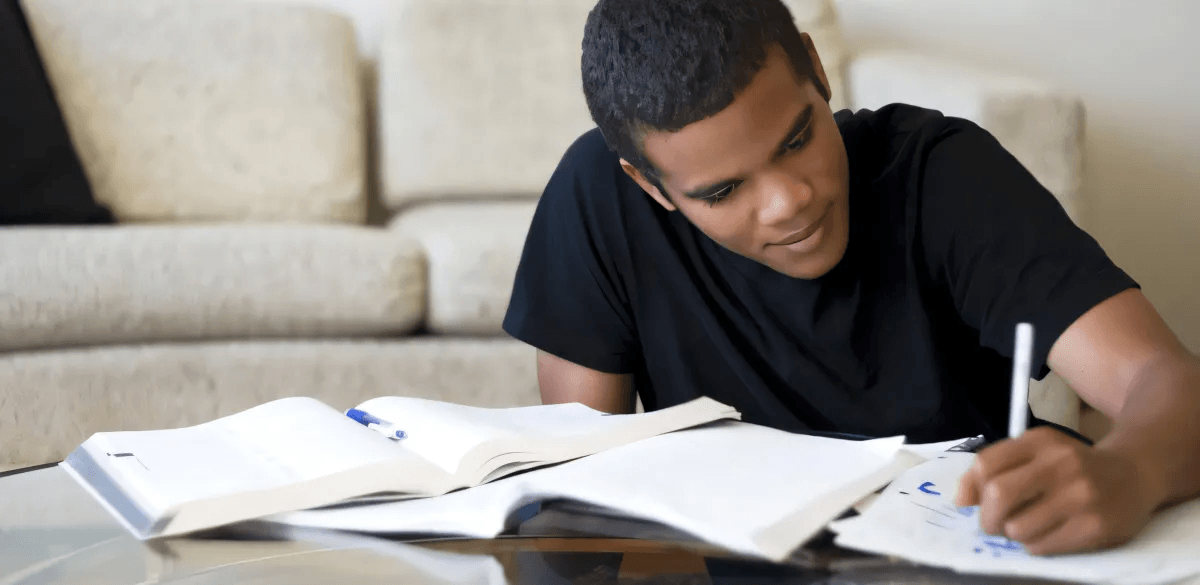
1. Study Over A Long Time
Now, I know what you're probably saying right now. "Study over a long time? I can barely study for one night!" Well, it isn't so bad once I get into the details.
When I say study over a long time, I don't mean you should study the entire course load of material for months at a time. I suggest that you should break up the material you are studying into smaller sections and study it over a week or two.
For example, suppose your professor announces to the class that you have a midterm exam in two weeks. In that case, you should break up the material into small sections and study over those two weeks rather than cram the night before and potentially forgetting the material.
This technique will help you actually remember the material for the exam because you were reviewing for two weeks rather than just for one night, giving you a higher chance of doing well on the test.
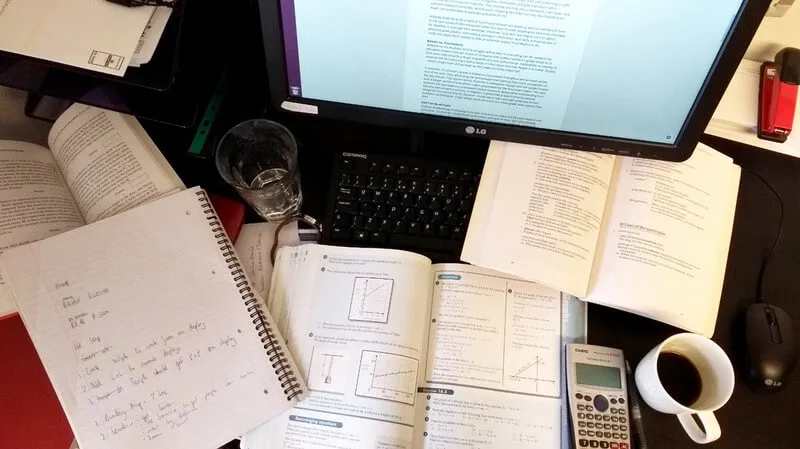
2. Take A Break And Do Something Else
Like an athlete can overwork himself or herself and end up pulling a muscle, a student can overwork their brain. I mentioned a similar strategy in my article about avoiding writer's block, and many of the same ideas apply to this entry on the list.
Even though the common misconception of the brain is a muscle is false, our brain can still be overworked like any other muscle. If you have been studying for a test or exam for hours at a time, then towards the end, you might start losing interest and start to tire.
Take a break. It's as simple as that. Taking a step away from what you are looking at can be just as beneficial for you as if you were studying. You don't want to tire out and completely forget the material you had studied just because you overworked your brain.
Go for a walk around the local park, go workout, watch some TV, scroll through social media. There are plenty of options to choose from to relieve yourself. Take this with a grain of salt, however.
Take a short break, and make sure not to lose track of time and getting permanently distracted. This can lead to procrastination and prevents you from your task at hand. Maybe set a timer to remind yourself to get back to your studying. Just be smart with the breaks you take from studying. One way to look at it is the 25/5 method. Study for 25 minutes, break for five. However, it is up to you, the person studying.

3. Avoid Distractions While Studying
"Hey, why are you telling me to avoid distractions after telling me to take breaks when I needed to?"
There is a big difference between taking a study break and avoiding distractions while studying. Do not get it twisted here; I still, obviously, suggest taking breaks when you need to. However, when you are in the middle of studying with no intention of taking a break, you need to avoid distractions.
Just take the materials you need with you and find a private area or room that you can study quietly in. Grab some headphones to block out any sort of unnecessary noise. Avoid the internet; as we all know, it is a very easy place to get sucked into for hours at a time. Put your phone down and ignore social media because, much like social media, it is an easy place to get sucked into.
Distractions only inhibit your ability to take in the material you are trying to retain while studying. Preventing any of these distractions from occurring and you are inherently increasing your chances to perform better.

4. Wake Up Early
Are you getting home late because of an extracurricular? Are you staying up into the wee hours of the morning doing homework and studying so that you don't fall behind? Well, if you said yes to these two questions, I have a solution for you. Wake up early!
If you need that extra time to do assignments or study for that big test, why have your physical health wavier because of it? You can wake up an hour before you normally do, so you can wake up and finish preparing for that test of finishing up that assignment.
This way, you don't go to school the next day looking like you just rolled out of a grave. You can still get your proper amount of rest while still finishing up on what you need to do for school.

5. Pick Extracurriculars Based Off School
Sometimes your extracurricular activities will get in the way of your studies. There is no way around it. If you are an athlete, the physical toll of your sport might take hold of you, and you might be too exhausted to do your homework when you get home from practice. If you're in the band, you might have practiced all week and then the big football game on Saturday or Sunday.
My suggestion is to pick your extracurricular activities based on your school schedule and your workload. Doing two things at 100% is very, very difficult even for the best students. That's why you need to take a look at your extracurriculars and your studies and pick your extracurriculars wisely. As I mentioned earlier, they can get in the way of each other. If one is preventing you from doing the other, then you need to make that choice.
6. Take Notes And Write Everything Down
I'm sure you have had older professors and teachers, whom you might think are old school, tell you to write down your notes. You might think it is because they come from a time before laptops, but it might actually be because we take in things that are written down better than what we see on a screen.
It is scientifically proven that when we write down our notes, it is easier for us to remember them when looking back on them in preparation for a test or exam. The process of writing helps your brain process the information being given to you in a much more detailed manner, compared to when you type it out on your laptop or desktop. That said since there is a higher chance that you will remember it more clearly when written down.
When put like this, you can see why all of your old professors from college told you to write down your notes instead of using a computer. You might have even had some that completely prohibited the use of a laptop in class.
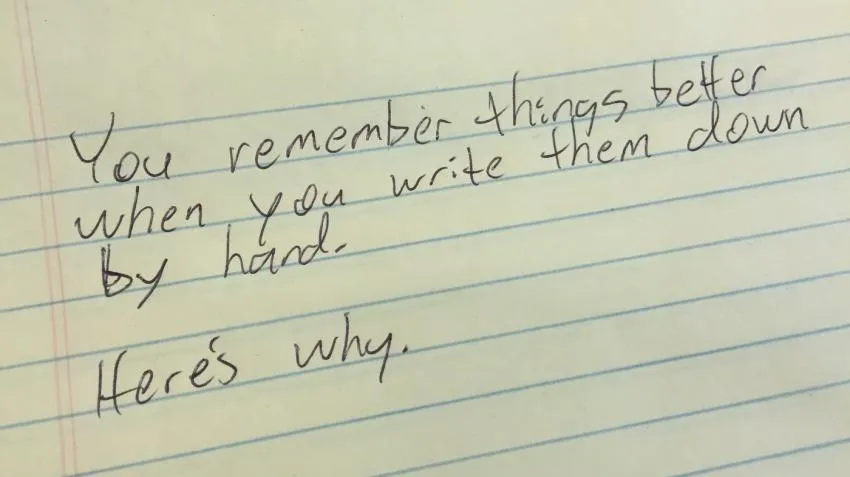
7. Study with a Friend
Are you having difficulty studying by yourself? That's perfectly fine; find someone to do it with, whether it's a teammate, a crewmate, or just your next-door neighbor. Having someone there with you can help you retain the information better because you aren't stating the information. They could potentially know the material better than you do and can help point you in the right direction to learning the material.
Just find someone whose schedule fits in with yours, and you should be all set to go. You can bounce information off of each other and learn from one another, potentially making you more successful in preparing for your tests. Make sure this is a friend who is taking their studies seriously, though.
You do not want to end up with a friend who, in turn, will only distract the both of you from studying. Choose wisely amongst your friends.
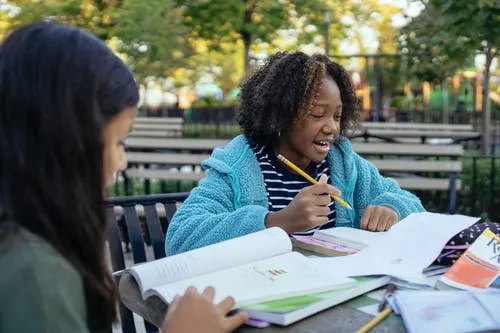
8. Ask Your Parents If You Need Help
Don't have the time to go actively search out for a tutor or use a friend? Well, you have two readily available resources at your fingertips. Your parents. Your parents will always be willing to help you study, even if they have no idea what the material is on.
As long as you have the material to give to them, then they will help you without question. You just need to pick the right time and make sure that they are able to, as well. They have their lives too, you know. They can help quiz you, ask you about definitions or formulas, and many other things.
Use all the resources available to you, and your parents are potentially some of the best you might have, especially if you are busy with sports or other extracurricular activities.

9. Quiz Yourself the Day Of
The day has finally come. On the day of the test that you have been studying for, using all the available resources and tips that you can. Yet, you still feel a little bit unprepared. Well, that's perfectly okay to feel that way. I have the solution for you—quiz yourself before your test.
Go through the material one last time, going over the things you might feel you might not know the best. Create a question sheet and write the answers next to them, but fold the sheet in half so you cannot see the answers, much like the picture shown below.
If your test is during your first class, wake up a little bit earlier so you can do this process. If your test is in your last class of the day, then you know you have some time to do this during your free time throughout the day.
Now I don't mean to cram every single detail into your brain on the day of the test. I mean that you have taken useful study tips and have studied a lot in preparation. A quick little quiz on the day of the test after studying for a long time leading up to the test might just help you get over a small mental block on certain topics.
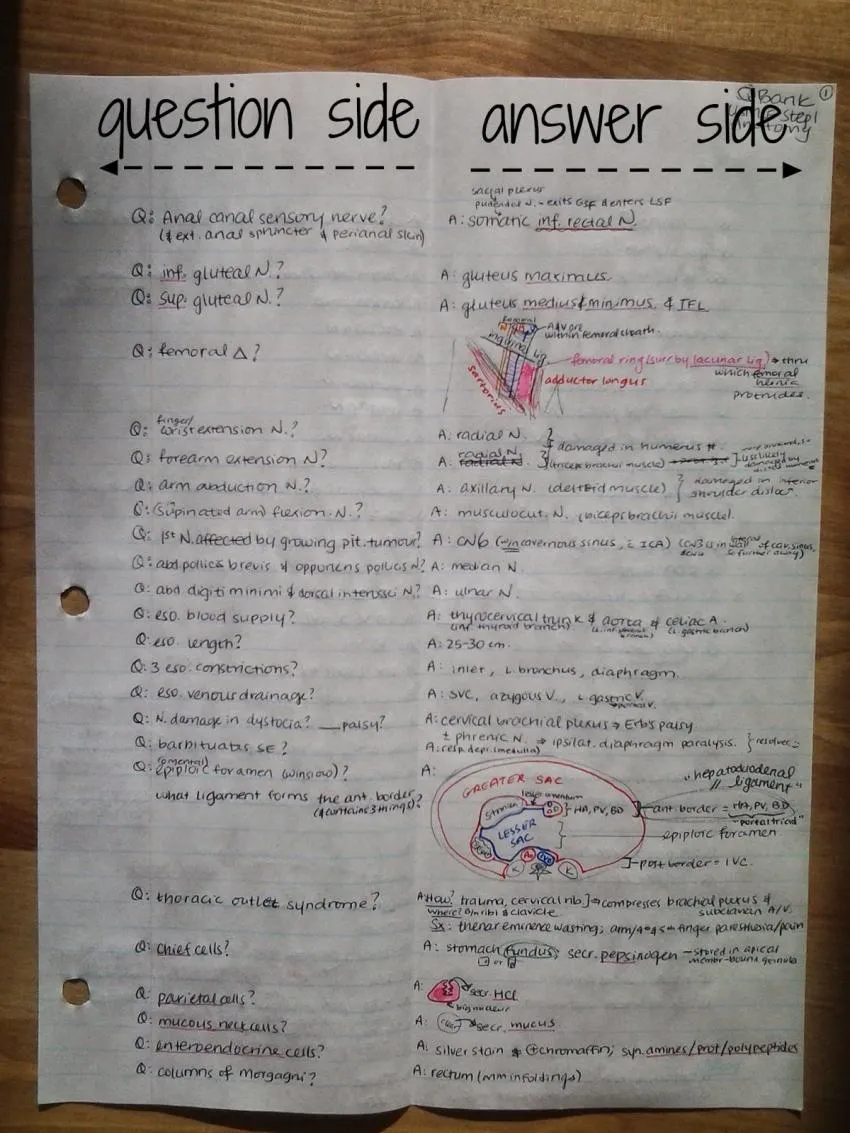
10. Find Out What Works For You To Find Your Focus
In 2019, an average US citizen's life expectancy was about 79 years old, 78.9 to be exact. Without being held back or using a post-graduate year, most college students will graduate at the age of 22, excluding any graduate school or any sort of medical school.
Based on these statistics, according to Our World in Data, a website about providing statistics like these, the average student is in school for a little more than a quarter of their life. That gives people plenty of time to figure out their studying habits and which one works for them.
There are plenty of different techniques out there that people can utilize throughout the course of their academic careers. You might try out reading through flashcards or quizzing yourself as you move forward. Who knows, that's for you to find out what techniques work for you.
You are studying for yourself and your academic success, no one else's, so find what works for you. Experiment with each test. Say you studied with flashcards, and you got a C on a test, but for the next test, you studied by quizzing yourself as you went along and got an A.
Finding your focus while you study can be a trial and error process, and it's up to you to come to your own conclusions.
I have had my own adventures with the balance of school and extracurricular activities. I've obviously been a student most of my life and have had to balance these two things out. It certainly was never easy.
I've also been an athlete all my life, with a short stint being a musician during elementary school. I know these tips work because I've used them to succeed, some more so than others. I know for a fact I've woken up early to finish homework after a long day at a soccer field, hockey rink, or baseball field.
I'm still an athlete in college, and the balance between extracurriculars and studies has grown even further. I need to balance my classes and workload while traveling two hours for games on a Wednesday afternoon. I've managed so far by using some of the tips provided above.
Use the tips that work for you and go for it.
Opinions and Perspectives
Balancing theater rehearsals with studying was tough until I followed these tips
These strategies work well for most subjects but math requires different approaches
The article should emphasize the importance of sleep more. It affects everything
These tips helped me balance marching band and AP classes last semester
Parent help works better for younger students. College material is too specialized
Im trying the early morning strategy next semester. Night studying isnt working for me
Studying with teammates works great because we understand each others schedules
These strategies helped me balance choir and honors classes. Organization is key
The article makes good points about avoiding distractions but its harder than it sounds
Finding my optimal study time was game changing. Im definitely not a morning person
I struggle with the balance between band and academics but these tips are practical
Breaking material into smaller chunks has helped me manage my debate team schedule
The article should address online studying techniques too. Everything is digital now
Studying over time definitely beats cramming. Learned that lesson the hard way
The distraction-free environment is crucial. I had to delete social media apps during exam weeks
These tips work great for regular students but athletes need more specific guidance
Taking notes by hand really does help with memory but my handwriting is terrible
Im glad the article mentions the importance of finding what works for you personally
Study groups can be hit or miss. You need to find people who match your study style
The early morning study tip sounds terrible but it actually works amazingly well
I found my focus improves when I study in different locations. Keeps my mind fresh
Managing theatre rehearsals and academics is tough but these strategies have helped me find balance
The self-quizzing technique has really helped me. I pretend Im teaching someone else the material
These tips assume everyone has time for long study sessions. Some of us have jobs too
I use voice recordings of my notes while Im at practice. Multitasking at its finest
Asking parents for help can be great if theyre patient. My dad actually makes studying calculus fun somehow
Study breaks are essential but I had to learn to set strict timers or Id never get back to work
The article underestimates how exhausting sports practice can be. Sometimes you just cant study afterward
Finding your own study style is key. What works for others might not work for you
My grades improved when I started treating study time like practice time. Same discipline, different skill
These tips are solid but they really need to address digital note taking apps. Not everyone learns better with paper
The early morning study suggestion changed my life. Its so peaceful and my mind is fresh
Writing everything down seems so time consuming though. How do you keep up with fast-paced lectures?
Taking proper breaks has helped me avoid burnout. Used to study for hours straight and retain nothing
I actually find studying right after practice works best for me. Im already in a disciplined mindset
The long term study approach sounds nice but with soccer practice every day its hard to find consistent study time
Complete silence helps me focus best. I invested in noise cancelling headphones and it was worth every penny
Managing band practice and homework is exhausting. These tips are helpful but sometimes there just arent enough hours in the day
The quizzing yourself tip is spot on. I make flashcards and test myself while walking between classes
Study groups can work if you find the right people. My calculus study group keeps me accountable
Im on the swim team and honestly being physically tired makes it so much harder to focus on studying afterward
Anyone else feel like these tips are great but finding the motivation to actually follow them is the real challenge?
The part about writing things down really resonates with me. Typing notes just isnt the same as putting pen to paper
Finding a quiet study spot is crucial. I started going to the library instead of studying in my room and my grades improved significantly
My parents trying to help me study is just frustrating. They dont understand modern teaching methods at all
I disagree about studying with friends. Every time I try it turns into a social hour instead of actual studying
The 25/5 method mentioned in the article totally works for me. I use a timer on my phone and it keeps me focused
Study breaks are essential but I always end up extending my 5 minute break into an hour on TikTok. Need better self control!
Interesting point about picking extracurriculars based on school schedule. I had to quit debate team because it clashed with my advanced math coursework
Writing notes by hand is absolutely crucial. I switched from laptop to notebook last semester and my retention improved dramatically
Anyone else find it impossible to study without background music? I know the article mentions avoiding distractions but complete silence drives me crazy
Breaking up study sessions actually helped me ace my last chemistry exam. I used to cram everything the night before but spreading it out over two weeks made such a difference
The wake up early tip sounds good in theory but I can barely drag myself out of bed as it is! Has anyone actually managed to make this work?
I really appreciate these study tips. As someone juggling band practice and AP classes, the long-term study approach has been a game changer for me
